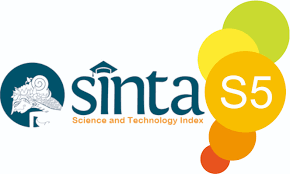Devisa dan Turis Mancanegara
 Abstract views: 762
,
Abstract views: 762
,
 PDF downloads: 788
PDF downloads: 788
Abstract
This study aims to determine the economic conditions in terms of foreign tourists as foreign exchange earners during the Covid19 pandemic in Indonesia. The research method used is descriptive method and content analysis. Broadly speaking, the systematic writing is more narrative that collects the opinions of experts, journals, books and writings published on the internet related to foreign exchange and foreign tourists. The results showed that foreign exchange and foreign tourists experienced a very large decline since the spread of the Covid19 virus. The research findings imply that the government must immediately take quick steps to overcome this in order to increase the country's foreign exchange.
Downloads
References
Databoks.katadata.co.id. (2018, 10 September). Berapa pendapatan devisa dari sektor pariwisata Indonesia. Diakses pada 6 Juni 2020, dari https://databoks.katadata.co.id/datapublish/2018/09/10/berapa-pendapatan-devisa-dari-sektor-pariwisata-indonesia
Economy.okezone.com. (2020, 16 April). Turis asing anjlok, 50 devisa sektor pariwisata lenyap akibat virus corona. Diakses pada 5 Juni 2020, dari https://economy.okezone.com/read/2020/04/16/320/2200241/turis-asing-anjlok-50-devisa-sektor-pariwisata-lenyap-akibat-virus-corona
Febriyenti, M., Aimon, H., & Azhar, Z. (2013). Faktor-faktor yang mempengaruhi cadangan devisa dan net ekspor di Indonesia. Jurnal Kajian Ekonomi, 2(03).
Gandhi, D. V. 2006. Pengelolaan cadangan devisa di Bank Indonesia. Jakarta: PPSK BI.
Sayoga, P., & Tan, S. (2017). Analisis cadangan devisa Indonesia dan faktor-faktor yang mempengaruhinya. Jurnal Paradigma Ekonomika, 12(1), 25-30.
Authors who publish with this journal agree to the following terms:
- The author (s) keeps copyright on any article.
- The author grants the journal, right of first publication with the work simultaneously licensed under a Creative Commons Attribution License that allows others to share the work with an acknowledgement of the work’s authorship and initial publication in this journal.
- Authors can enter separate, additional contractual arrangements for the non-exclusive distribution of the journal’s published version of the work (e.g., post it to an institutional repository or publish it in a book), with an acknowledgement of its initial publication in this journal.
- Authors are permitted and encouraged to post their work online (e.g., in institutional repositories or on their website) prior to and during the submission process, as it can lead to productive exchanges, as well as earlier and greater citation of published work.
- We distributed the article, and any associated published material under the Creative Commons Attribution-Share alike 4.0 International License




